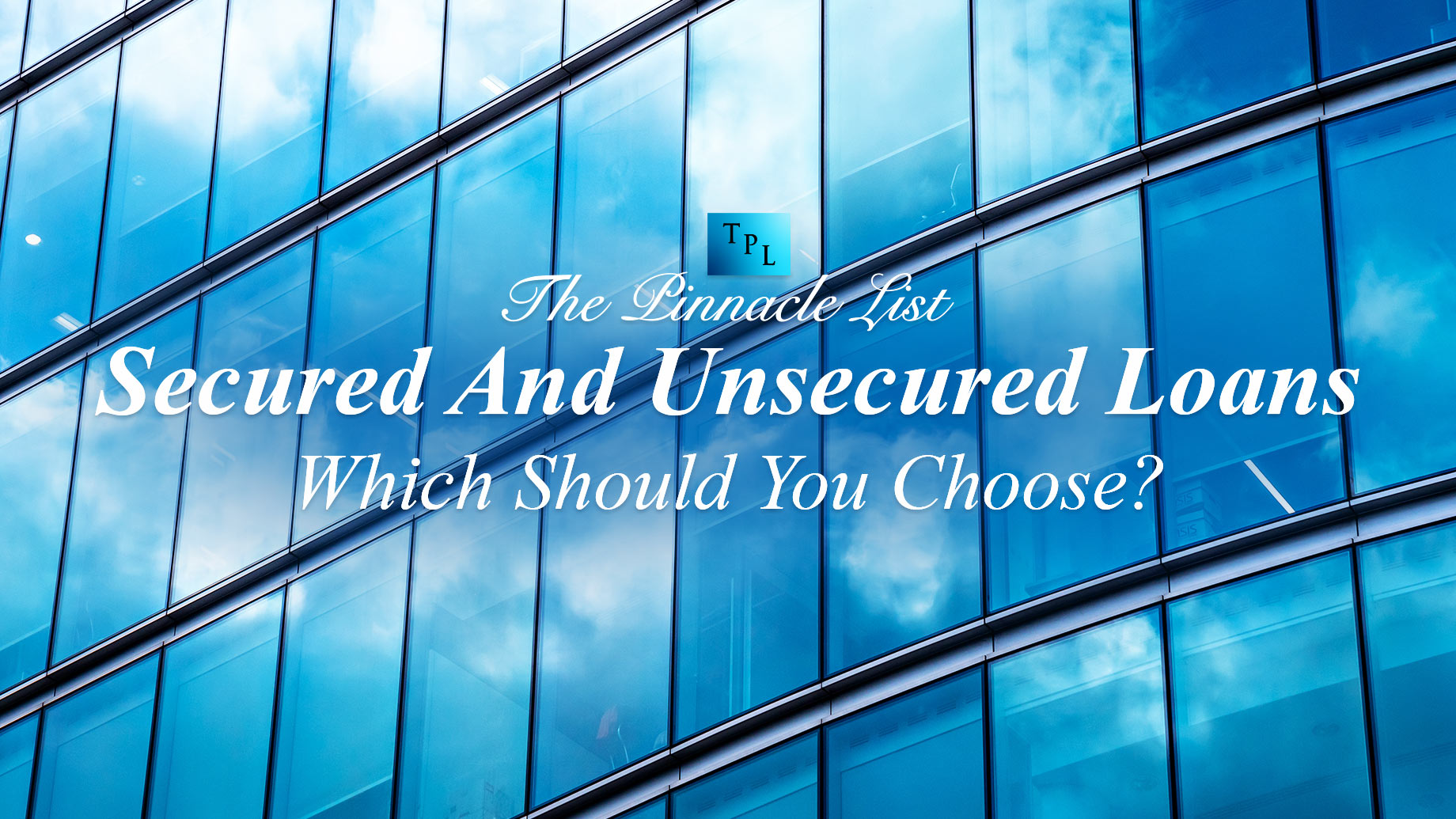
Choosing whether to apply for a secured or unsecured loan might be tricky. Quite often, you will come across small business loans that private lenders promote. But how do you know which one to choose?
In this article, we will help you learn everything you need to know about secured and unsecured loans so you can make the best choice. So let’s start with the basics and build our way up!
What is a Secured Loan?
Secured loans are personal or business loans that require collateral as one of the conditions for borrowing. They come with low-interest rates, have a pretty easy approval process, and you should repay them over a few years.
People usually use secured loans for larger purchases like homes or vehicles. For example, if you buy a car, then the car is the collateral that is a security if you don’t repay the loan.
Other examples of secured loans are mortgages, which use the home you purchase as collateral. Secured credit cards are another example, and they can help people with limited credit history build their credit scores. The collateral, in this case, is the cash deposit, and if you don’t make a monthly payment, lenders take money from the cash held. You can follow us at ehallpass.
What is an Unsecured Loan?
Lenders approve unsecured loans based on the borrowers’ credit history and don’t require collateral. However, if you don’t repay on time, it can affect your credit score negatively. Additionally, the lender can send your cash to a collection agency.
With the unsecured loan, you can benefit from fewer risks as you don’t provide collateral, and you can also use the loan for more things; they don’t limit you to particular purchases.
An example of an unsecured loan is a personal loan with fixed monthly payments for a certain period. Furthermore, student loans are also unsecured and are for students with a bit of credit history or assets.
Key Differences Between Secured and Unsecured Loans
The main differences between secured and unsecured loans are their collateral, interest rates, borrowing limits, repayment terms, and the approval process.
Collateral
With secured loans, the borrower puts in collateral, which the lender can gather if you don’t repay the loan on time. On the other hand, unsecured loans do not require collateral, but not repaying them may affect your credit score, and you can even face court decisions.
Interest Rates
Secured loans have lower interest rates because of collateral, as it’s less risky for the lander. In comparison, unsecured loans have higher interest rates than secured ones, and borrowers need an excellent credit score to apply.
Loan Amount Limits
Lenders approve secured loans for more specific purposes of the borrower, such as purchasing a car or a house. Due to this, borrowers will face more limited options, as they can’t take up a secured loan for whatever they want.
On the other hand, unsecured loans are more flexible for how you use the money. For example, you can apply and get an unsecured loan if you don’t use the funds for illegal activities, such as gambling in countries where it is prohibited or buying securities.
Repayment Terms
Secured loans have a repayment term of 1-25 years, as they serve for more expensive purchases. In contrast, unsecured loans come with a lower repayment term, usually varying from 3 to 5 months.
Approval Process
The approval process with secured loans starts with applying for the loan by providing your personal data, property value, and income. Then, you submit documents that back up your statements, like a document for property ownership. After that, the lender finishes the application and checks your credit report. Lastly, if they approve a secured loan, they deposit it into your account.
The application process for unsecured loans is similar to that of secured loans. First, you provide personal information and amount of income, but you don’t need to provide any documents proving property ownership. Once you submit this information, the lender decides, and if you get permission for an unsecured loan, they transfer it to your account.
Conclusion
Secured and unsecured loans have fundamental differences. While secured loans have lower interest rates, you risk losing your collateral if you can’t repay the loan. Compared to them, unsecured loans protect your assets, as they don’t require collateral but have higher interest rates.
As a result, secured loans are a better choice for people who require a larger loan, want to repay it for a more extended period of time, if they have issues with personal loan allowance, or wish to repay lower interest rates. On the other hand, unsecured loans are better for those who have strong credit histories and want to avoid the risk of providing collateral. All information about our portal is available at ehallpass.